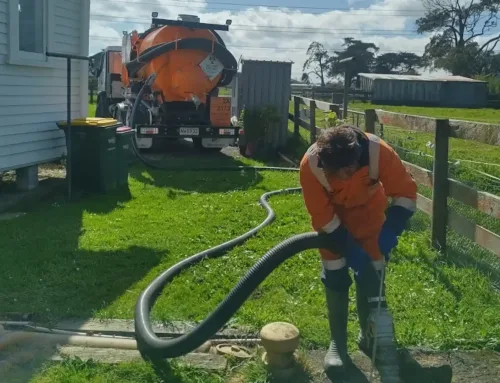Not known Incorrect Statements About Reclaim Waste
Not known Incorrect Statements About Reclaim Waste
Blog Article
Indicators on Reclaim Waste You Should Know
Table of ContentsReclaim Waste Things To Know Before You Get ThisThe Definitive Guide for Reclaim WasteSome Known Factual Statements About Reclaim Waste More About Reclaim WasteHow Reclaim Waste can Save You Time, Stress, and Money.
Explore the types, events, and forms of fluid waste. Domestic sewage waste refers to the waste and items from a residential septic storage tank. This type of waste is produced by humans in homes, institutions, and other buildings. This only includes septic systems that have a drainpipe area. The appropriate administration and disposal of residential sewer waste call for fluid waste to be moved to a sewer therapy plant where the proper approaches and devices are applied to cleanse and deal with waste.
Industrial waste frequently consists of possible dangers, such as flammable products or a mix of liquid and strong waste products, and calls for a much more sophisticated and comprehensive disposal procedure. The disposal of business waste typically entails the purification of waste before transport to make certain risk-free and appropriate disposal. Industrial waste is produced from by-products and drainage of industrial procedures and production.
This kind of waste can not utilize the exact same sewage management transportation or processes as septic or business liquids. The hazardous waste administration process calls for the inspection and screening of fluid waste prior to it undergoes the disposal process (industrial wastewater treatment). Overflow waste is the liquid waste that originates from runoff and excess stormwater in extremely populated locations or cities
Drainage waste can create contamination and flooding otherwise dealt with properly. Find out more regarding sewage system cleaning and waste monitoring. Making certain proper waste monitoring can avoid calamities and lower environmental harm. Both people in domestic setups and professionals in commercial or production sectors can gain from understanding the procedures and regulations of liquid waste administration.
Excitement About Reclaim Waste
Call PROS Providers today to find out about our waste administration and disposal services and the appropriate methods to look after the fluid waste you generate.
(https://www.easel.ly/browserEasel/14532007)This so-called 'wastewater' is not just a vital resource but, after treatment, will be launched to our land, waterways or the sea. Used water from bathrooms, showers, bathrooms, kitchen area sinks, washings and industrial processes is known as wastewater.

water used to cool machinery or clean plant and tools). Stormwater, a kind of wastewater, is overflow that moves from farming and metropolitan areas such as roofs, parks, gardens, roads, courses and gutters into stormwater drains, after rainfall. Stormwater moves untreated straight to neighborhood creeks or rivers, eventually getting to the sea.
Unknown Facts About Reclaim Waste
In Queensland, most wastewater is dealt with at sewer treatment plants. Wastewater is transferred from residential or commercial sites via a system of sewage systems and pump stations, referred to as sewerage reticulation, to a sewage treatment plant. City governments develop, maintain and operate most sewage therapy plants. Operators are certified under the Environmental Management Act 1994 to discharge treated wastewater at an appropriate environmental criterion into rivers.
The Department of Natural Resources recommends city governments concerning managing, operating and maintaining sewage systems and therapy plants. In unsewered locations, city governments may call for householders to mount private or home sewage therapy systems to deal with domestic wastewater from commodes, kitchen areas, washrooms and laundries. The Division of Natural Resources authorises making use of household systems when they are verified to be effective.
Many stormwater receives no therapy. In some new communities, treatment of some stormwater to eliminate clutter, sand and gravel has begun using gross toxin traps. Wastewater treatment occurs in 4 phases: Eliminates solid matter. Bigger solids, such as plastics and other things wrongly released to sewage systems, are removed when wastewater is gone through displays.
Uses small living microorganisms knows as micro-organisms to damage down and get rid of continuing to be liquified wastes and great particles. Micro-organisms and wastes are integrated in the sludge.
The 15-Second Trick For Reclaim Waste
Nutrient removal is not offered in all sewer therapy plants due to the fact that it calls for pricey specialised equipment. It is coming to be extra common in Queensland. Clear fluid effluent generated after therapy may still contain disease-causing micro-organisms. If this effluent is launched into rivers such as rivers or the sea, the micro-organisms will eventually pass away out.

Many wastewater streams right into the sewerage system. Under the Act, neighborhood governments carry out authorizations and permits for eco appropriate activities (ERAs) involving wastewater launches that may have a find here neighborhood impact.
10 Simple Techniques For Reclaim Waste
Tracking gives factual information about water high quality and can confirm that licence problems are being satisfied. The information gotten through monitoring gives the basis for making water quality decisions.
Report this page